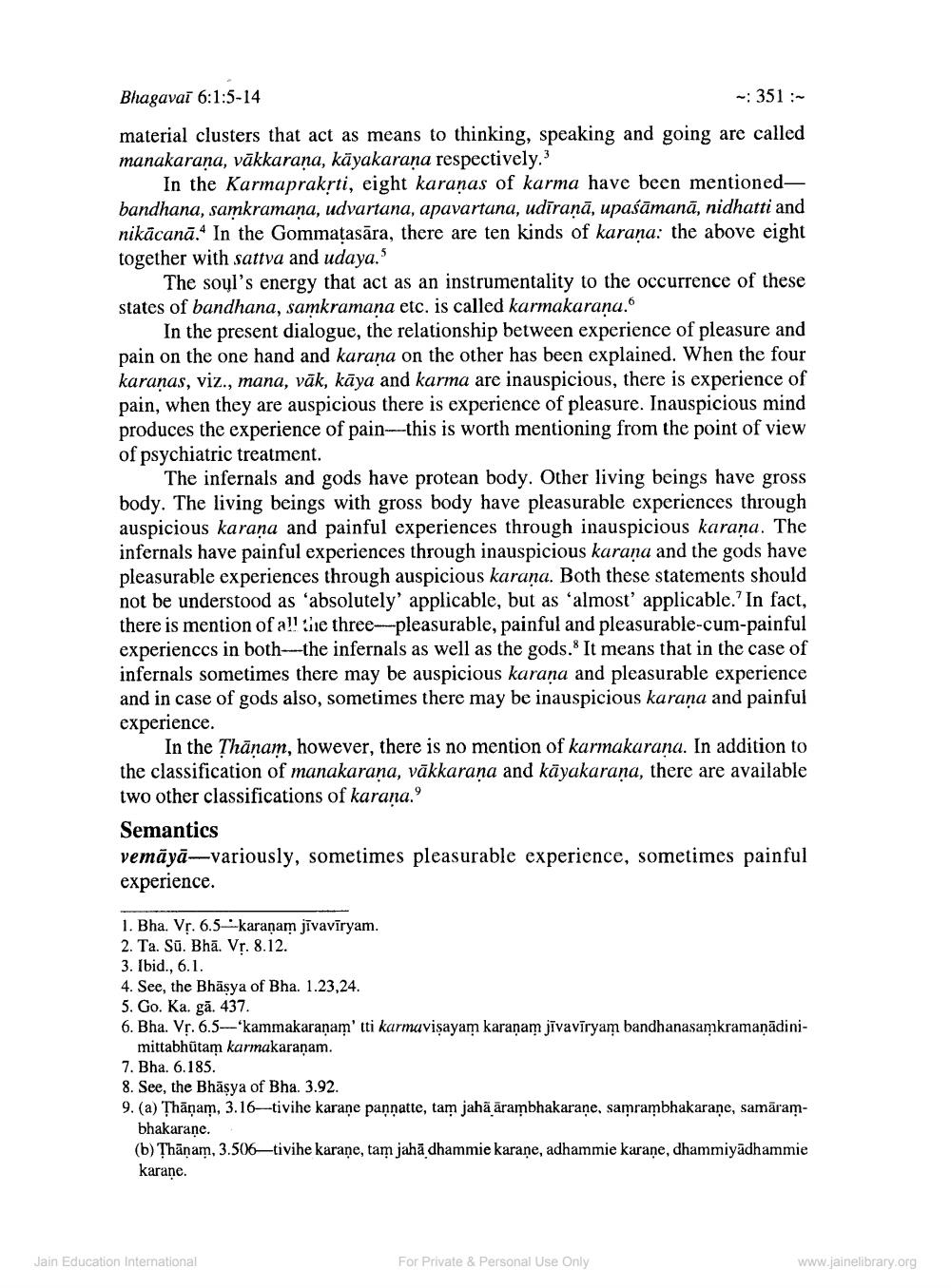________________
Bhagavai 6:1:5-14
~: 351:~
material clusters that act as means to thinking, speaking and going are called manakaraṇa, vākkaraṇa, kāyakaraṇa respectively.3
In the Karmaprakṛti, eight karaṇas of karma have been mentionedbandhana, samkramaṇa, udvartana, apavartana, udiraṇa, upašamana, nidhatti and nikācană. In the Gommatasära, there are ten kinds of karana: the above eight together with sattva and udaya."
The soul's energy that act as an instrumentality to the occurrence of these states of bandhana, samkramana etc. is called karmakarana.
In the present dialogue, the relationship between experience of pleasure and pain on the one hand and karana on the other has been explained. When the four karaṇas, viz., mana, vāk, kāya and karma are inauspicious, there is experience of pain, when they are auspicious there is experience of pleasure. Inauspicious mind produces the experience of pain-this is worth mentioning from the point of view of psychiatric treatment.
The infernals and gods have protean body. Other living beings have gross body. The living beings with gross body have pleasurable experiences through auspicious karana and painful experiences through inauspicious karana. The infernals have painful experiences through inauspicious karana and the gods have pleasurable experiences through auspicious karana. Both these statements should not be understood as 'absolutely' applicable, but as 'almost' applicable.' In fact, there is mention of a!! the three-pleasurable, painful and pleasurable-cum-painful experiences in both--the infernals as well as the gods. It means that in the case of infernals sometimes there may be auspicious karana and pleasurable experience and in case of gods also, sometimes there may be inauspicious karana and painful experience.
In the Thanam, however, there is no mention of karmakarana. In addition to the classification of manakarana, vakkarana and kayakarana, there are available two other classifications of karaṇa."
Semantics
vemäyä variously, sometimes pleasurable experience, sometimes painful experience.
1. Bha. Vr. 6.5karaṇam jīvavīryam.
2. Ta. Sü. Bhā. Vṛ. 8.12.
3. Ibid., 6.1.
4. See, the Bhasya of Bha. 1.23,24.
5. Go. Ka. gă. 437.
6. Bha. Vr. 6.5-kammakaraṇam' tti karmavisayam karaṇam jīvaviryam bandhanasamkramaṇādinimittabhütam karmakaraṇam.
7. Bha. 6.185.
8. See, the Bhāṣya of Bha. 3.92.
9. (a) Thānam, 3.16-tivihe karane pannatte, tam jahā ārambhakarane, samrambhakarane, samarambhakarane.
(b) Thāṇam, 3.506-tivihe karane, tam jaha dhammie karane, adhammie karaṇe, dhammiyadhammie karane.
Jain Education International
For Private & Personal Use Only
www.jainelibrary.org




